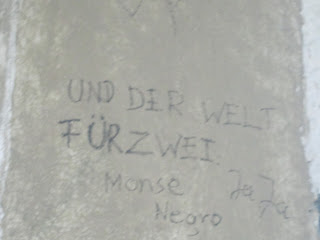











I once heard a saying from a friend who had lived in Japan:
"When you've spent two weeks in Japan, you know all there is to know about the Japanese. After two months, you know a little less. And after you've lived in Japan for two years, you realize that you will never know anything about what it means to be Japanese."
Adjust the time frame and the country, and you have my China experience in a nutshell! I think that's part of why I haven't been blogging lately-everything here is so complex and overwhelming that I can barely wrap my head around it, much less write it up in snappy blog post format.
Let me explain what I mean. In Yunnan province (where I am staying) alone, 26 different recognized ethnic minorities co-exist. You can go to the largest market in Kunming, the Bird and Flower Market, and stroll past stalls of Miao jewelry next to Bai clothing stores, followed by rows of digital cameras and cellphones (and, furthermore, when you stop in at the Miao jewelry shop, the traditionally-robed proprietor will look up from his portable DVD player to greet you).
But even this situation has several hundred layers of nuance behind it. Ethnic minorities in China were once discriminated against severely, but are now encouraged to continue their cultural traditions-so long, of course, as they do so in a manner that is happy and tourist-friendly. Minority groups are granted some autonomy within their provinces, but they can most emphatically not become their own states, regardless of how much or little they have in common with the Han Chinese majority. So China celebrates its diversity, but with the primary goal of projecting an image of harmony that may or may not serve the best interests of the minorities themselves, who often struggle to preserve their traditional ways.
Then you have to wonder, what are 'traditional ways' anyhow, and why must the choice be between 'preserving' or 'exterminating' them, as opposed to letting cultures grow and change on their own? But in such an increasingly connected world, filled with societal pressures and misconceptions, what does 'on their own' even mean?
These are the sorts of questions that cloud my mind when I try to write blog posts. To make the matter even more complicated, the over 50 ethnic minorities in all of China (as opposed to just Yunnan province) represent only a fraction of the hundreds of groups that applied for minority status when the government began implementing special laws regarding the country's minorities. If your head is spinning, you're not alone.
Still, the vast diversity of China and Kunming does provide a certain serendipity to daily life. I can walk home past the half-butchered carcass of an unknown animal hanging in the street, and enter my host family's apartment to see their 15 year-old daughter, Ting ting (English name Sunny), browsing the web on her iPad. Experiences like that one make me realize that our day-to-day life in the United States is not the only model of modern existence. And if the smallest cotidian details of city streets vary so much in each country I visit, maybe the larger patterns that govern societies are also changeable and varied across the globe.
Anyway, if I can't explain the intricate web that is China in a few paragraphs, I can at least give you all a summary of what my daily life is like here.
Each morning after breakfast (I'm really starting to appreciate starting the day with a bowl of hot noodles) I walk 20 minutes to the university where we have Chinese class. Our teacher, Charles, has a store of patience matched only by the quantity of his varied talents (Palaeontology? Japanese? Photography? Check, check, and check.)
After class we have either a lecture, a seminar, or media project work time, followed by a leisurely lunch break. You can get seven fresh dumplings here for the equivalent of about one US dollar.
At around 1:00, we go to a local middle and high school, where we split up into groups of two or three to teach classes of English language learners. The 60 student class size makes this fairly intimidating, but we are gradually discovering what techniques make for an effective and enjoyable lesson.
After teaching, we walk back to the university for media project time and lesson planning for the following day. Then we go our separate ways and I head back to my family's apartment to chill out, have dinner, and read.
So that's it for my average routine. Although I had some definite culture shock when we first arrived in Kunming, having a fun and set schedule has helped me feel more able to absorb the huge variety of sights and sounds here in China. And of course, Charles is always ready to help us with questions about both language and culture. On one of our first days here he explained to us that Chinese language is often awkward, dancing around strong expressions and substituting soft negations. For example, if I absolutely despise a dish at a restaurant, I "don't love it too much"; and if I give a blatantly wrong answer in class, it's “maybe not too correct”. This concept of linguistic side-stepping is not unheard of in English (ha!), but I explain it to you here because it is in this sense that I intend the title of this post. Perhaps you can now better understand what I mean when I say that China is Not Too Simple.




























